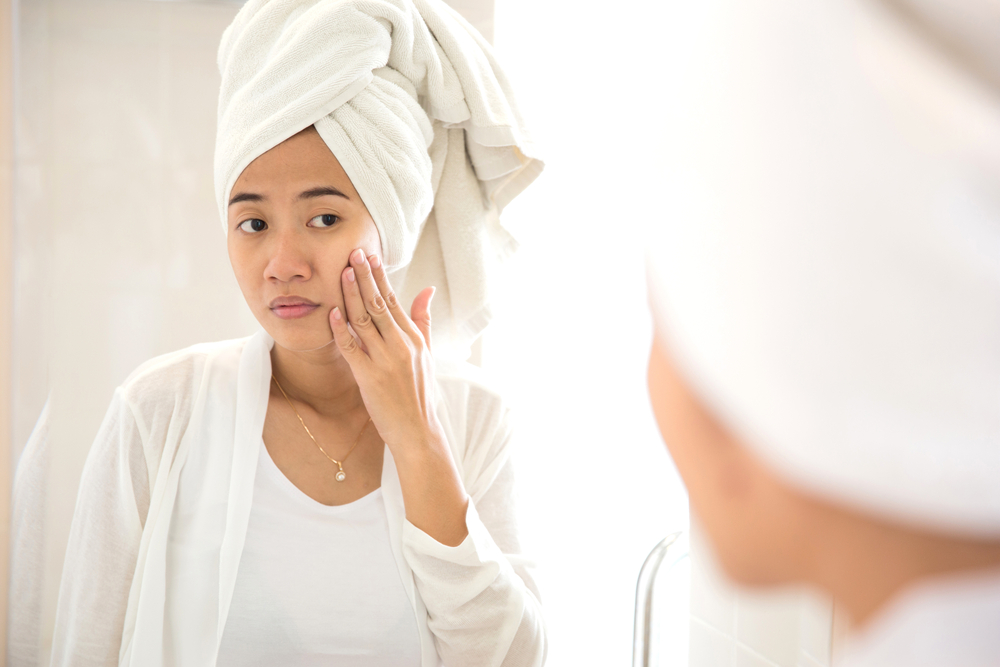You must have heard the adage, “You are what you eat”? Yes ladies, it is no secret that healthy skin starts from within. What you are eating in food has a massive effect on not only your health, weight and overall mood, but also on your hair, skin, and nails as well. One more old adage goes like, “When you’re healthy on the inside, it shows on the outside.” However, it is completely okay to have oily skin, if your skin is producing excess oil, leading to breakouts, this is the time to looking into your diet. There are certain foods that may generate oil production in your skin leading to excess sebum being produced, which in turn can cause acne, pimples, breakouts, enlarged pores, whiteheads, and blackheads.
What you eat directly affects your skin. You can turn your oily skin into a healthy and glowing one by making just a few simple changes in your diet to remove oily skin. Here, we have compiled a food list to eat that will help you controlling the oil secretion from your sebaceous glands and making it healthy and glowing.
Best Foods to Eat to Avoid Oily Skin
- Cucumbers
Cucumbers are mostly made up of water as it contains 95.23 g of water per 100 g. You must have known hydration is very important for healthy skin. Water helps to flushes out toxins from the body, facilitating the proper secretion of hormones. On the other hand, cucumbers are also a great source of antioxidant content, which is essential for healthy skin.
- Whole Grains
Whole grains are essential for enhancing skin texture and improving the complexion. If you want to stay away from oily skin, always opt for foods that are minimally processed like, choosing whole wheat bread in place of white bread. Consume foods that are high in fibre, like oats and brown rice, it will help you eliminating the toxins from your body, making your skin and hair healthier.
- Nuts
Nuts are a high source of omega-3 fatty acids, which helps to illuminate the skin from inside making it clearer and healthier. Nuts are also known for its anti-inflammatory properties, which helps to enhance the texture and skin tone. But some health professionals suggest to not consume too many of them, otherwise, it may have the opposite effect on skin.
- Spinach
Green vegetables are all the health benefits in itself. Green veggies like spinach, kale, and broccoli do not have any oil content in them. They are a rich source of fibre, which helps to clear the skin from inside and regulate oil production. As we discussed above, the skin needs water to stay hydrated and healthy, and one cup of spinach contains about 164 grams of water.
- Lentils and Pulses
Consuming lentils and pulses regularly in the right amounts can help in controlling the production of oil, facilitating healthy skin as they are nutrient-dense. They control the oil production in the body.
Also Read: Connection between Oily Skin & Acne
Foods to Avoid to eat for Oily Skin
These are the foods that you should exclude from your diet completely as they are literally not to consume foods especially for oily skin as these may increase the oil production in the skin.
- Dairy Products are considered as an essential part of the diet, but if you are having oily skin, they may have a negative impact on your skin. Dairy products contain high levels of hormones like testosterone that stimulate the sebaceous glands in your skin, making it oilier and greasier.
- Taking tea and coffee can also be harmful to your oily skin as it dehydrates the body, leading to excess oil production, causing acne, breakouts, and pimples.
- If you have oily skin, you should ignore refined cereals like white flour, white pasta, junk food, and processed juices, as it may harm your skin spiking your blood sugar levels and sending oil production into overdrive.
- Avoid taking fatty foods as consuming a high amount of saturated fats can increase inflammation in your skin, leading to excess oil production. It is highly recommended to avoid red meats such as lamb, beef, sausages, and bacon, as well as butter, cream, pizza, cheese, cakes, and pastries.
- You must avoid consuming sugar as it may cause a spike in your blood sugar levels and this may lead to more production of insulin, which, in turn can cause your glands to produce more oil in your skin.
- Excess salt is also not good for oily skin as it may lead to water retention and inflammation. Excess salty foods like pickles, crisps, salted nuts, sauces, creamy soups, meats and bacon, wafers- chips, and crackers can also promote to an increase in the oil levels of the skin.
Additional Tips to follow in your regular routine
Here are a few tips that will come in handy if you have oily skin.
- Avoid soaps and include oil-control face washes in your skincare products.
- Use blotting paper for your skin.
- Try natural homemade face masks and use natural remedies like honey, aloe Vera and clay to control the oil on your face.
- Try yoga, it will balance your hormones and will keep your skin fresh.
- Workout regularly to keep your skin healthy and glowing.
- Don’t punish your skin by washing it multiple times and scrubbing it too hard to combat oiliness.




